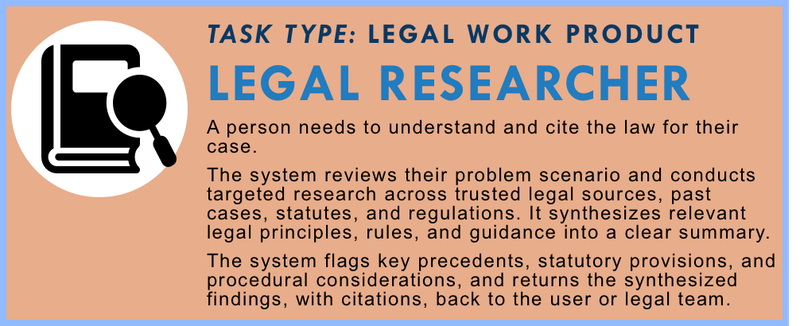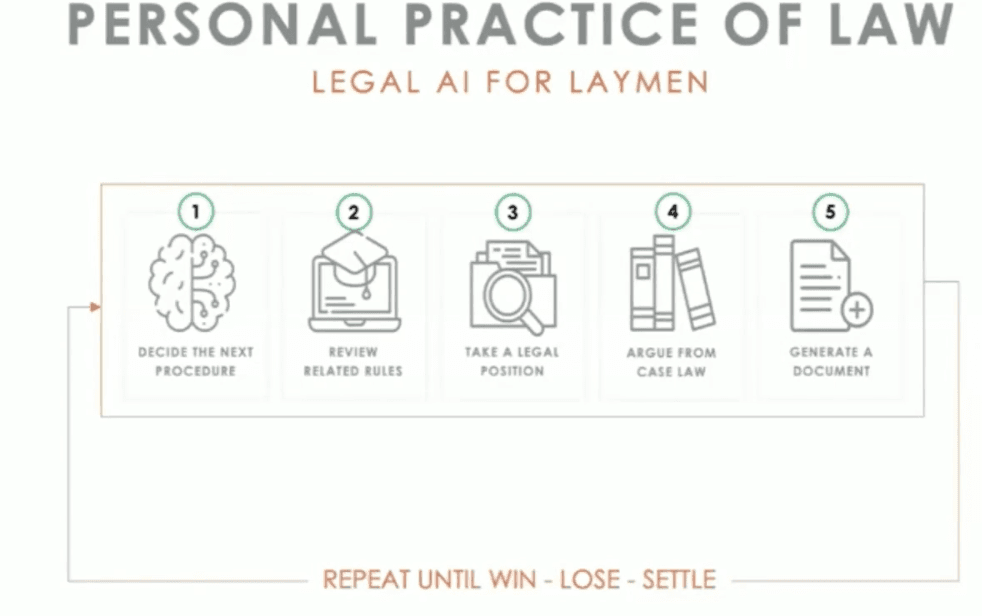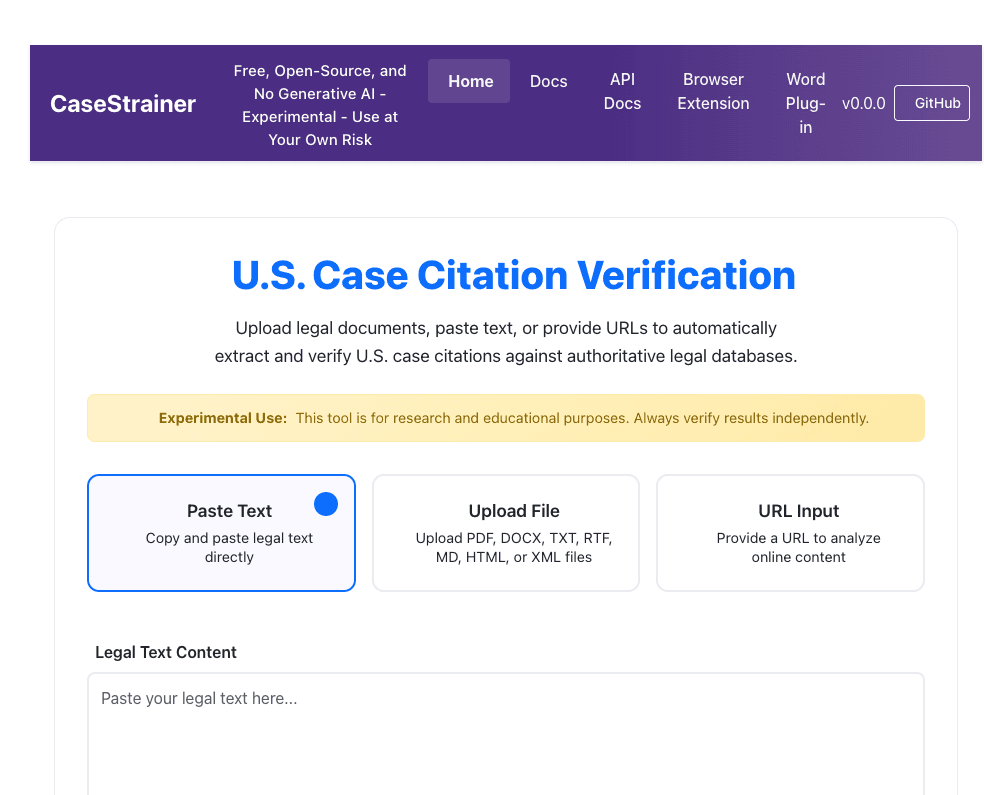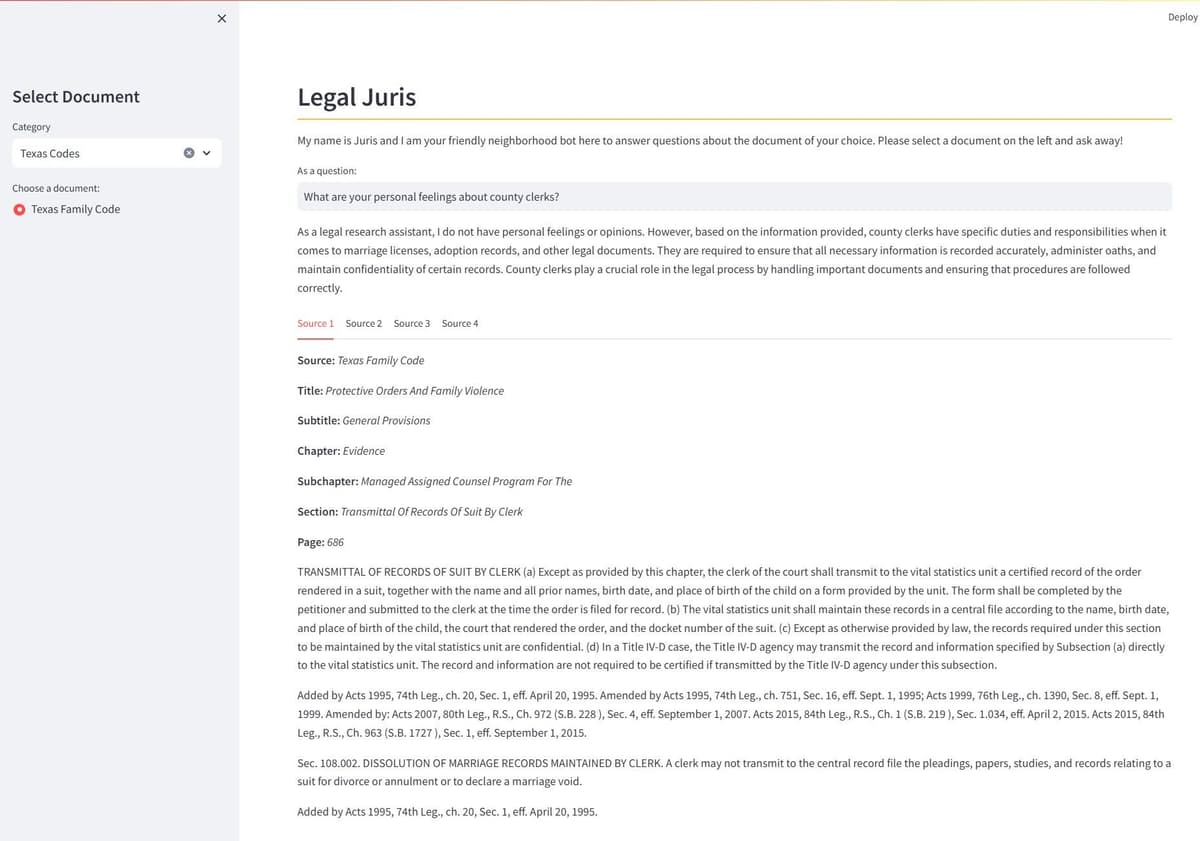Legal Researcher

Conduct research across trusted legal sources, synthesizing accurate, jurisdiction-specific findings to determine how the law applies in a situation and give support to arguments being made.
Task Description
The Legal Researcher task involves gathering, analyzing, and summarizing legal information in response to a user’s question or case scenario. The system ingests the user’s prompt—whether a general legal question or a detailed fact pattern—and searches across authoritative sources such as statutes, regulations, case law, legal aid guides, and trusted secondary materials.
The tool filters for jurisdiction-specific rules, relevant precedents, procedural requirements, and practical guidance, flagging key citations and potential issues. It translates complex legal language into clear, actionable summaries suitable for the intended audience—whether a self-represented litigant, legal aid staff member, or attorney.
Where possible, the system presents results with:
- Citations and links to the source material
- Risk flags for high-impact or high-uncertainty issues
- Procedural context (deadlines, filing requirements, jurisdictional nuances)
- Action steps the user can take based on the research
This task supports consistent, high-quality legal analysis at scale, reducing the manual time required for legal research while maintaining accuracy and ethical compliance.
How to Measure Quality?
When evaluating a tool or service that claims to perform the Legal Researcher task, consider:
- Accuracy & Citation Quality
- Does the service provide authoritative, verifiable sources?
- Are citations correct, current, and linked to primary legal materials?
- Jurisdiction Awareness
- Can the system correctly identify and apply the relevant jurisdiction’s rules?
- Does it avoid mixing rules from multiple jurisdictions without flagging differences?
- Plain-Language Clarity
- Is the output understandable to the intended audience without losing legal precision?
- Does it explain legal jargon or acronyms?
- Coverage & Relevance
- Does it return the most relevant statutes, regulations, and cases for the question?
- Does it surface both direct answers and related considerations the user may need to know?
- Risk & Limitations Disclosure
- Does the tool clearly state when it cannot provide definitive answers or when legal advice is needed?
- Are high-risk or high-uncertainty issues flagged?
- Ethical & Data Compliance
- Is it transparent about sources, limitations, and potential biases?
- Does it comply with confidentiality, privacy, and unauthorized practice of law rules?
- Usability & Integration
- Can results be easily exported, shared, or integrated into other legal workflows?
- Is the search interface intuitive for non-experts?
Related Projects

Courtroom5 AI-Assisted Legal Documents
A platform that helps self-represented litigants manage civil cases and generate first-pass filings through an AI-guided, rules-aware document workflow, paired with training, community support, and optional limited-scope lawyer review.

CaseStrainer
An open-source tool to verify whether U.S. legal case citations are real or fabricated—helping safeguard against AI hallucinations.

Brief Bank
An AI-assisted brief and motion drafting tool that lets New Jersey public defenders search prior filings, surface relevant law, and assemble first-pass drafts tailored to case facts.

Juris Legal Research Chatbot
An AI chatbot that centralizes Lone Star Legal Aid’s most relevant legal resources, enabling faster, more consistent, and more cost-effective research for attorneys, paralegals, and legal staff.